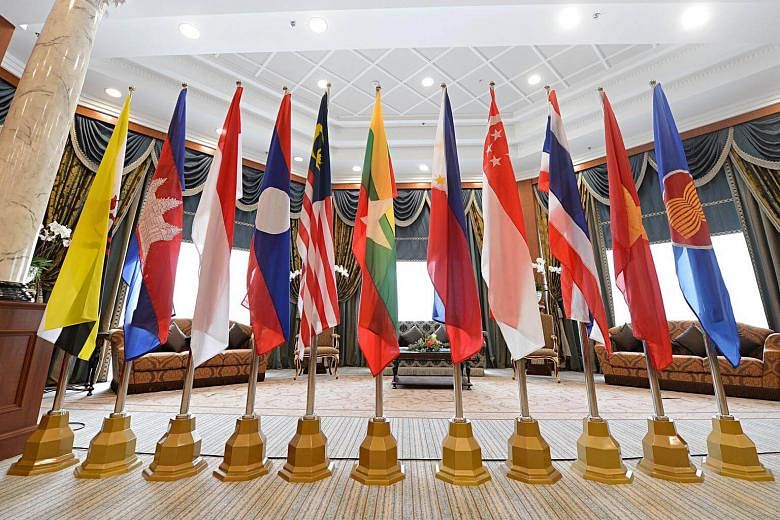The Association of South-east Asian Nations (Asean) celebrates its 50th anniversary this year, and Singapore can rightly be proud of being one of its five founding members.
But Central Intelligence Agency (CIA) documents from the late 1960s portray then Prime Minister Lee Kuan Yew as being initially sceptical about the grouping, given the geopolitical circumstances of its birth.
With the trauma of the 1964 racial riots and the subsequent separation from Malaysia, as well as memories of Confrontation still fresh, newly independent Singapore had a "more independently minded" foreign policy than its neighbours, Malaysia and Indonesia, said the agency. A 1974 special report showed the stark divergence between the foreign policies of Malaysia and Singapore.
While Kuala Lumpur placed "considerable value" on its membership in Asean, Singapore was an active participant in the grouping "only to accommodate the other four members of the organisation" - Malaysia, Indonesia, Thailand and the Philippines. One reason for the difference in attitudes was distinct world views on how to keep South-east Asia peaceful.
Malaysia was the chief proponent of a South-east Asian zone of neutrality, guaranteed by, but free of, "Great Power" rivalries, and as such, saw Asean "as a handy vehicle for promoting (this) pet foreign policy project", said the CIA.
But Mr Lee viewed this as "a noble but impractical goal", given that big powers like China and the United States would never lose interest in South-east Asia. He argued instead that regional security rested on a balance of forces between these powers. Mr Lee was cited as saying the idea was creating "a Shangri-la in our minds", and that "Shangri-la is not for South-east Asia unless one seeks the poppy variety".
The CIA noted that the other Asean members had also "unenthusiastically endorsed" neutralisation as a distant objective, partly because Thailand and the Philippines welcomed the US military presence in their territories.
"Even though it accepts its colleagues' reservations, Kuala Lumpur is nettled by what it sees as Lee Kuan Yew's unnecessary sarcasm in expressing contempt for the concept," read the CIA report.
Mr Lee's view was eventually vindicated by history: The Cold War made it clear to all Asean members that the major powers could not be kept out of South-east Asia.
But Vietnam's invasion of Cambodia in 1978 made Mr Lee rethink the role of the grouping. The CIA noted that it was Singapore's leaders who publicly called for closer military and security cooperation within the framework of Asean.
"The idea of closer military cooperation has been widely, though privately, discussed among Asean members since the Vietnamese invasion of Kampuchea earlier this year, but thus far no government head other than Singapore's Lee Kuan Yew has endorsed it."
It would be another three decades before Asean agreed to formally begin high-level cooperation on defence - it kicked off the first Asean Defence Ministers' Meeting only in 2006 - but the grouping today has extensive exchanges on a wide range of issues from terrorism and maritime security to vocational training and disaster relief.
Lim Yan Liang

